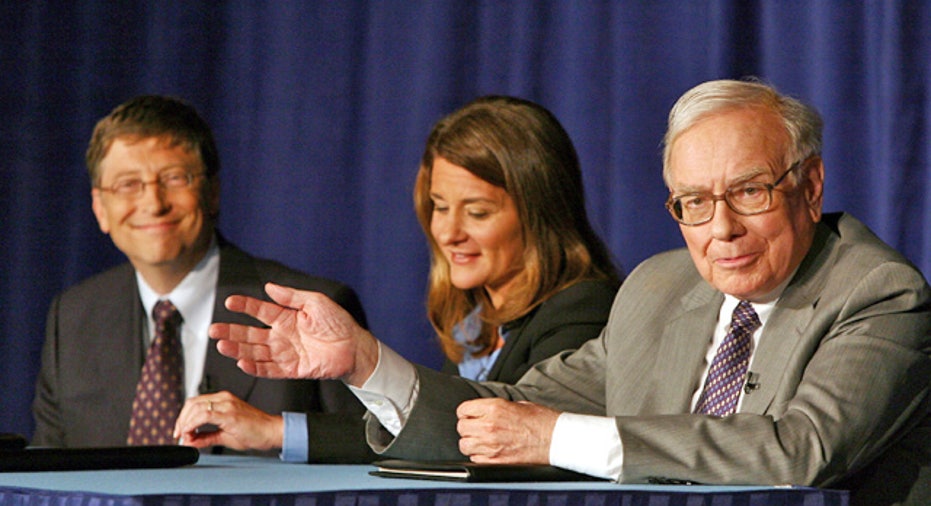Poor, Middle Class and Rich: Who Gives and Who Doesn’t?

Turns out a bigger paycheck doesn’t necessarily lead to more charitable giving.
Despite the headlines dedicated to donations made by superrich celebrities like Mark Zuckerberg and Oprah Winfrey, data shows that the most charitable people in the U.S. aren’t those making six or even seven-figure salaries, it’s lower-income people.
In an article in The Atlantic this month, author Ken Stern details the charitable divide between the income classes. The author of “With Charity for All: Why Charities Are Failing and a Better Way to Give,” writes that in 2011, Americans with earnings in the top 20% of income levels contributed, on average, 1.3% of their income to charity. Those at the bottom 20% donated 3.2% of their cash to charity—more than double of what their more-wealthy counterparts donated.
What’s more, Stern says those at the bottom income levels often do not itemize their tax returns, so they aren’t taking advantage of the charitable tax deduction.
Caroline Preston, senior reporter at The Chronicle of Philanthropy, says as people accumulate more wealth they tend to become more insulated and set apart from others, making them potentially less aware of others’ needs and struggles.
A report from The Chronicle in August 2012 found people who make between $50,000 and $75,000 give an average of 7.6% of their discretionary income to charity, compared to an average of 4.2% for those making $100,000 or more. A separate report from this same period found of the nation’s 1,000 most generous ZIP codes, only nine rank in the country’s 1,000 richest areas.
But not all data and experts reinforce the large discrepancy in donation amounts among earners. Ken Berger, president and CEO of Charity Navigator, a nonprofit evaluator, says Sterns’ calculations are lower than Charity Navigators’ data, which find the rich tend to give about 3% of their income to charity, compared to the poor giving between 4% and 5% of their income and middle class donors give the smallest percentage of income at 2.5%.
“This is not to say that the rich don’t give very substantially to human services foundations,” Berger says. “About 70% of all charitable giving in the U.S. is given by the wealthy in this country. If we didn’t have the rich giving the way they are giving, between 70% and 80% of all charitable giving in the U.S. would disappear overnight. Trashing the wealthy isn’t fair.”
A Difference in Donations
Not only do the wealthy and the poor give different proportions of their income to charity—they also give to different causes.
“When it comes to the rich, the big areas of donation are the arts, universities and sometimes health-care organizations,” Berger says. “That is not to say they don’t give to other causes as well. With the poor, they tend to lean towards human services, direct service organizations that are focused on serving the poor. It’s how you define charity because some don’t see a hospital or museum as a charity, but they need donations to operate.”
Preston says it’s harder for social services organizations to garner support from wealthy donors. “The super wealthy, billionaires of the world give to universities, cultural organizations and higher-education institutions,” she says. “For anti-poverty and development-relief organizations, it’s just harder to get on the radar of these wealthy donors. People, in general, tend to give to groups they have some kind of a tie to.”
Causes that Transcend
Disaster s and major tragedies like the Boston marathon bombings last week tend to draw donations from across all income levels, according Berger, with people making major contributions, as well as smaller $5 and $10 donations.
Preston says the wealthy in particular may hold back from contributing to charities set up in response to a recent disaster because there is less structure as to how the funds will be used.
“Disasters and emergencies prompt an outpouring of generosity,” she says. “They want to find a way to help, especially with a lot of media attention. But we don’t see huge gifts [dollar amount-wise] going to emergencies, because we simply don’t have knowledge of how that might be spent.”
Increasingly, wealthy donors in particular are looking for evidence that their funds are being put to good use, Berger says. Major organizations like the Bill & Melinda Gates Foundation and the Robin Hood Foundation have spearheaded this, he says, and the wealthy continue to give only to efforts and organizations with tangible results.
“We don’t just want streaming videos and photographs of puppies,” Berger says. “All charities are not the same, and we need meaningful evidence of results. Wealthy people are pushing for this, but also young people, entrepreneurs--they want to see meaningful changes in peoples’ lives.”



















